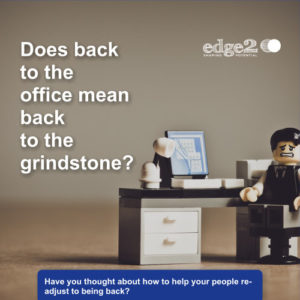Embracing Failure
While talking and working with many mid-managers, professionals and leaders across Europe and the Middle East it seems that the creation of awareness and acceptance of failure is a topic that touches many.
We all fail! It’s how we learn as kids. We try to walk, we fall down, we hurt ourselves, we get back up. The average baby will fall down 17 times in a single hour while learning to walk. In some cases a parent will rush towards us with an expression of horror and a scream and we get an inkling that failing may be considered as a bad thing. I was perhaps lucky in many ways but unless there was blood flowing or I turned blue with pain my parents congratulated me whenever I failed – at least at the toddler stage. “well done! – that was a spectacular crash” was a typical reaction from my parents. They weren’t quite so enthusiastic when at the age of almost 30 I tanked my first company and walked away with a large burden of almost life crippling debt – but they stood by me and tried to help me see the learnings and the bright side.
As we grow older failure becomes more and more deemed as being bad, in some cases and cultures almost evil und unacceptable. I see many students longing to do something (with their lives, with their ideas) but sometimes paralyzed by the fear of failure. If humans were companies we would all still be crawling. The whole concept of walking would be deemed bad after the first couple of failures. Today many large corporates strive on the one side for so-called “innovation” but shun risk or failure on the other.
There thankfully are examples where we seem to be learning to accept failure. Supercell in Sweden as just one company where when projects are tanked they are renowned for opening and celebrating the failure with champagne! They feel that if they’re not failing they’re not innovating enough! They’re playing it safe. And they feel playing it safe is actually dangerous in the gaming industry. The Rajan Tata, founder of industrial giant TATA regards “failure as a goldmine” and even went so far as to create a prize for the best failed idea. Google is another great example.
So failure is actually good! It’s just how you deal with it that counts. And how you deal with it can determine how you cope with so many other things in life. As a leadership coach I see that “change” and “resilience” are huge topics in the corporate world. Both are closely linked to possible (or actual) failure. It’s learning to accept it and turn what we have been taught is bad into something good. If we can get back to our infantile state of curious learning and embracing failure (and bruises) as part of the world we live in, I am certain we could unleash much more of our potential.
One environment that allows this is gaming. In the classic videogame of the 80ies you had 3 lives. You could fail, you could learn and you could carry on. It was fun! Todays games are decidedly more complex but each and every one of them allows us to fail and to learn from those failures – and we love it! In fact in games we want to fail! Imagine a game that you nailed from the start and never failed – it would be so boooring!
In the safety of the game we learn to battle monsters, zombies, solve puzzles, learn languages through failure. This opportunity linked with feedback and goals are just a few of the ingredients that make games so addictive but also so useful. Unfortuanetly in the rest of our lives we expect and demand from ourselves (and others) to never fail.
When things go wrong or fail far too much time and energy is spent looking for the culprit, in pointing fingers and in dissecting mistakes to find out who goofed up. STOP IT!
Instead focus on what worked, what you can do to avoid it happening again.
How much more innovative could you be if you encouraged more failure – both in yourself and those around you, if you created safe zones for failure, and helped shift the mindset of others. Look for lessons to be learned and how to utilize these in the future.
So next time you fail or find yourself fearing failure how about trying to adjust your mindset? Ask yourself: What can I learn from this failure? Look at all the things I’ve gained. Next time what will I do differently? Embrace it, be curious and have fun doing so.



